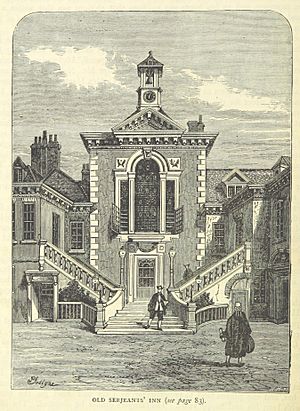William Charles Wells facts for kids
William Charles Wells (born May 24, 1757 – died September 18, 1817) was a Scottish-American doctor and printer. He had a very interesting and varied life. He did important medical research and was the first person to clearly talk about natural selection. He used this idea to explain why people have different skin colors. Later, Charles Darwin said that Wells was the first to recognize the idea of natural selection.
Contents
Early Life and Education
William Charles Wells was born in Charleston, South Carolina on May 24, 1757. His parents, Mary and Robert Wells, were Scottish and had moved to South Carolina in 1753. His father was a printer. William had two sisters, Louisa Susannah Wells and Helena Wells.
When he was 11, in 1768, William was sent to school in Dumfries, Scotland. After finishing school, he studied at the University of Edinburgh for a year.
In 1771, Wells returned to Charleston. He became a medical apprentice, learning from Dr. Alexander Garden. Dr. Garden was a well-known naturalist and doctor.
A Life of Change
In 1775, the American War of Independence began. Wells left Charleston suddenly and went to London, England. He didn't want to sign a paper that would have made him fight against the British government.
In 1776, he went back to the University of Edinburgh to study medicine. He earned his medical degree in 1778. After that, he returned to London to continue his medical training.
In 1779, Wells went to Holland as a surgeon for the British Army. He later resigned from this role. He then moved to Leiden in the Netherlands and studied at the University of Leiden. There, he wrote his medical paper on the topic of Cold.
In 1781, he went back to Carolina to help with his family's business. During this time, he had many different jobs! He was an officer in a group of volunteers, a printer, a bookseller, and a merchant. He even worked as a judge for a military court.
When the British left Charleston in 1782, Wells moved to St. Augustine, Florida. There, he started the East Florida Gazette, which was the first weekly newspaper in Florida. He also published other papers. In 1784, he returned to England to work as a doctor.
Medical Career and Recognition
In 1790, Wells became a doctor at the Finsbury Dispensary. He worked there until 1798. In 1793, he was chosen to be a Fellow of the Royal Society, which is a very respected group of scientists.
In 1798, he became an Assistant Physician at St Thomas's Hospital, and by 1800, he was one of the main doctors there. Around 1800, his health wasn't very good, but he still did a lot of important medical research.
In 1814, Wells was also elected a Fellow of the Royal Society of Edinburgh. In the same year, the Royal Society of London gave him the Rumford Medal. This award was for his important paper called Essay on Dew.
William Charles Wells passed away on September 18, 1817, in London. He is buried at St Bride's Church. His sister, Louisa Susannah Wells, put up a special stone to remember him and their parents.
Wells's Idea of Natural Selection
William Charles Wells was one of the first British doctors to think about how living things change over time. His ideas were very important for understanding evolution.
In 1813, Wells wrote a paper that was later published in 1818. It was called Two Essays... with some observations on the causes of the differences of colour and form between the white and negro races of men. In this paper, he explored how different human races might have developed.
Wells noticed that nature does something similar to what people do when they choose animals for breeding. He wrote that if some people were better suited to a country's diseases, they would have more children, and their group would grow. He thought that in hot places like Africa, people with darker skin would be better suited to the climate. Over time, they would become the main group.
Charles Darwin and Alfred Russel Wallace didn't know about Wells's work when they shared their famous theory of natural selection in 1858. However, Darwin later said that Wells "distinctly recognizes the principle of natural selection." Darwin noted that Wells applied this idea to humans and to skin color.
Wells's work was a very early step in understanding natural selection. While he focused mainly on human skin color, Darwin and Wallace later showed how this idea applies to all living things.
Wells's Work on Dew
In the 1780s, Wells and others thought that dew and frost formed because the ground became colder than the air. But they believed the dew and frost actually caused the cold.
In 1811, Wells started to doubt this idea. He began doing serious experiments and published his findings in 1814. He studied how dew formed under different conditions. He looked at different materials, locations, temperatures, and weather conditions.
Wells concluded that dew is actually water vapor in the air that turns into liquid. This happens when the temperature, temperature changes, and how well materials conduct heat are just right.
Wells's work on dew was highly praised by other scientists. They saw it as a great example of how to do scientific research by observing and experimenting. Sir John Herschel, a famous scientist, called it "one of the most beautiful specimens" of scientific study.
 | Tommie Smith |
 | Simone Manuel |
 | Shani Davis |
 | Simone Biles |
 | Alice Coachman |


